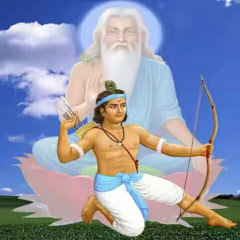Tamil matrimony epitomizes a practice that determines the simple nature of the Tamil society, sustaining the diverse traditions and customs which come before the standard wedding customs. Southern India deals in plainness and modesty, which is subsequently redirected in their cultural traditions.
To find a partner for matrimony in South Indian traditions goes for online Tamil matrimony login. A marriage for the Tamil group is an occasion of joining precious incidents to enjoy the celebrations. Explicit to the typical kinds of stuff of weddings, Tamil matrimony customs are comparatively huge.
Have a look at the customs.
Ponnu Park
The Ponnu Parkal is the chief event of the Tamil Matrimony customs which is also called the Bride seeing Ceremony which took place at the Brides home. The bride to be will be asked to serve food and Coffee to the Groom and their parents. If both the person and family like each other, the subsequent proceeding for the marriage will be started. Even Canadian Tamil matrimony follows the same customs which make this tradition awesome.
Nitchiyathartham or Engagement
The next step in the Tamil Matrimony Customs is the Nitchiyathartham. This is commonly the Engagement ceremony which the Groom’s Parents arrange with all their relatives who will go to the bride's residence to fix the bride for their son. Tamil Bride and Tamil Groom exchange ring then. The Grooms family brings a seer containing fruits, dry fruits, and coconuts along with a saree, blouse, bangles, and other cosmetics for the bride to be dressed up.
How do Groom and bride dress up for engagement?
The bride wears up in the clothes brought by the Groom’s family, and the ritual goes off modestly. The groom is dressed up in silk dhoti and kurta in white. This tradition is followed for years in Tamil Matrimony Customs.
Mapillai Alaiphu
This traditional custom Mapillai Alaiphu is directed on the previous day evening of the wedding day. On this ceremony, the Groom is taken to the Kalyana mandapam from the nearby temple with Mela thalam as Urvalam. Some people decide the Engagement or the Nitchiyathartham ceremony on this day as the wedding is the next ceremony after this.
This is a great ceremony steered at every Hindu wedding.
Mangalsnanam
The matrimonial customs include the observation of Mangalasnanam. This is a ritualistic bath at an auspicious time early in the morning of the day for both the Tamil Bride and Groom. On this occasion, aarti is done by the women in the household, and then the bride and Groom are dressed for the mangalsnanam. Then there is Gauri Pooja, Pada Pooja and Kaasi Yatra are the customs observed after, which lead to the matrimonial proceedings.
The Wedding- Muhurtham
The Bride and Groom dressed in the new dresses bought for their wedding day. The Groom is taken first to the Muhurthamedai to honour his parents with a patha poojai and then the bride comes to the Muhurthamedai to honour her parents with a patha poojai. Then the groom ties the Thali knotted on a yellow thread or thread immersed in turmeric to the bride's neckline. There are three knots to be put in Thali, which represents the brides bonding to her husband, her new family and the family. In Tamil Christian matrimony ties, the groom only the Groom's sister ties the first knot, the rest of the knots.
After this process is complete, they are not expected to leave home until the wedding. Additional customs like
• Navgraha Pooja,
• Nandi Devata Pooja,
• Naandi Shraartham,
• Vietnam,
• Nicchiyadharatham,
• Janavasanam is likewise observed.
Nagavalli
After the marriage, the Nagavalli is enjoyed, where the bride and the Groom have to play some games portraying their family life. The bride then departs for the Groom's house at an auspicious time. Before taking an entry to the new house, an aarti is taken to ward off the evils. In her new-fangled home, the bride in Tamil Christian matrimony is asked to light the lamp in the worship room to mark the beginning of a new life. This is followed by the wedding reception with Music organized by the leading Orchestra.
Here, the Tamil Matrimony Customs come to end. Many people feel like enjoying these customs in Tamil marriage normally in an arranged marriage. However, some seek the shortest way to accomplish wedding rituals. But these Tamil matrimony customs make it a great success to lead a happy and prosperous married life.
Auspicious timings and date for Tamil matrimony
Tamil weddings as per the priests should not be kept from July fifteenth to August fifteenth- that is Aashad maas or from September fifteenth to October fifteenth the Bhadrapad maas, and December fifteenth to January fifteenth- Shunya. This also applies to Tuesdays and Saturdays, each of which is regarded as unfavourable.
To know more about the customs, tradition, and culture visit the online Tamil matrimony New Zealand portal.
Source: https://www.linkedin.com/pulse/what-all-you-need-know-tamil-matrimony-customs-/




